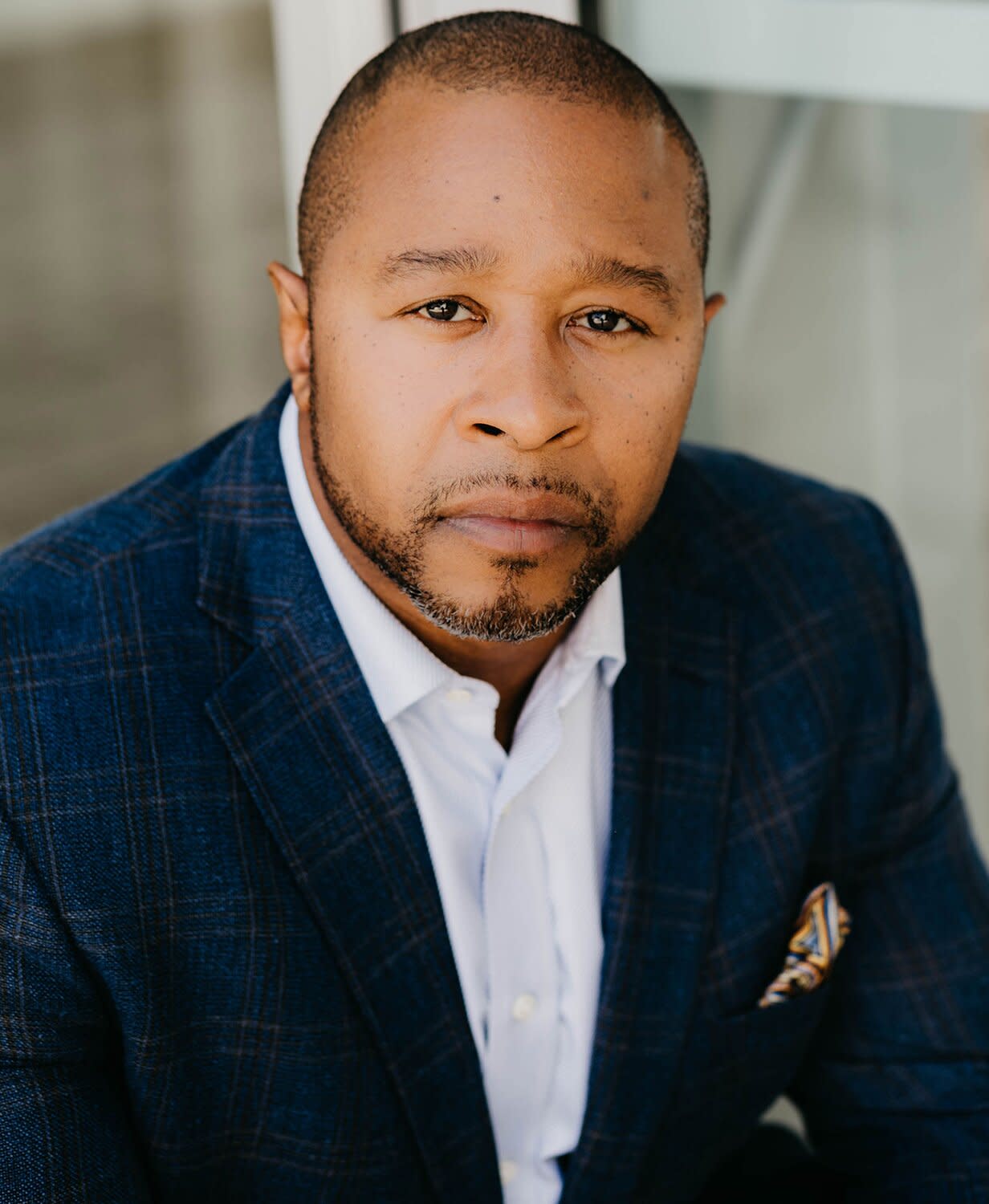Lawyer Recalls Winning His First Case in Same State Courts Where He Was Wrongfully Convicted

Negine Sekandari Jarrett Adams
When he was just 17 years old, Jarrett Adams' college plans — and his whole life — were blown apart when he was wrongly convicted of rape by an all-white jury and sentenced to 28 years in jail. In 2007, after nearly a decade in prison, Adams was exonerated. He went on to become a defense attorney, working with the Innocence Project, the same nonprofit that helped secure his freedom. Adams details his life before, during and after this nightmarish — and all too common — experience in his new memoir, Redeeming Justice. "I needed to hurt in order to give people this story, so we can prevent other people from being in pain," Adams says of the triggering writing process. Here, the founder of Life After Justice, a nonprofit that supports and empowers exonerees, remembers winning his first case in the same state courts that had sent him to prison years before, despite his innocence.
During my own trial, it was so painful to sit there and be accused of a crime — a heinous crime against a woman — after being raised by all women. My mother was in tatters. I kept asking her, "Mom, you know who you raised. Why are you so nervous? Why are you so afraid?" She looked at me and she said, "When I see you, I see Emmett Till. You don't know what it's like. You don't know that being innocent ain't a savior when you Black."
When I appeared before the same state court 10 years after my release, I was working as a defense attorney with the Innocence Project. My client was also wrongfully convicted. During the hearing, I often relived certain moments in my own case, how vulnerable we were, how much we didn't know. It felt amazing to not only know the law, but to be able to calm my client and his family's anxiety by simply saying, "I understand." Because I do.

Random House
After the conviction was reversed, I got an opportunity to hug his mom. My client was white, I'm Black. That's a rarity. It is almost always the opposite way, where the lawyer is white and the client is Black. To be on the reverse of that is something that can't be missed. It's hard to describe, but it feeds the fuel of my drive to continue to dismantle this criminal justice system that has never, ever been designed to equally and effectively protect African Americans in the United States.
When my family was in the courtroom, the judge and prosecutor weren't even looking at us. They weren't even acknowledging us. When I got that first big victory, they had to acknowledge me because they had to say, "Attorney Jarrett Adams."
RELATED: Authors Say Writing Novel Inspired by Their Own Interracial Friendship Felt 'Impossible' at Times
I'm encouraged by the Black Lives Matter movement, but this wave doesn't come that often. We had a war on drugs that obliterated the Black community's stability. I want to see a war to repair the damage that was done. And the only way you can have a war on that is by revitalizing the school system, transportation, childcare, health care and employment opportunities in the areas that have been directly impacted.
Life After Justice is the organization that I co-created to help exonerees — and we need support. We need monetary resources. More importantly, we need law firms to donate pro bono hours to help us fix this thing. You fix it by getting people out of prison and helping them gain stability and staying out. Over 50 percent of the people who are currently incarcerated have been incarcerated before. So, that means that our incarceration system is the problem, not the person.
What I'm doing, there is no off switch. I will continue to fight in honor of the women in my family who fought for me. My objective, my goal is to balance the scales, to save the lives of young Black men that we're throwing away right now.
I feel like I'm doing great work, but sometimes it feels like I'm spooning water out of the ocean. I wrote this book so that readers learn something that is never highlighted in court: They make it seem like everyone is born at the scene of their accusation and they were never a person before that. It's important to humanize my story because no matter what — white, black, green, yellow — everybody has a mother.
— As told to Sam Gillette
Redeeming Justice: From Defendant to Defender, My Fight for Equity on Both Sides of a Broken System is on sale now.
